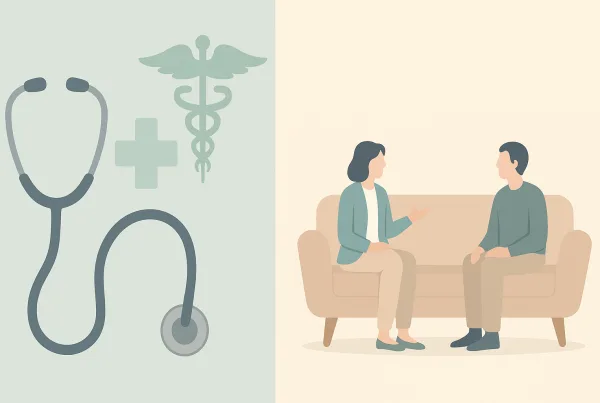The field of psychiatry is rapidly evolving, with new technologies and treatment approaches shaping how mental health care is delivered. As questions arise about the future of psychiatrists—especially with the rise of artificial intelligence (AI)—it’s important to understand what psychiatrists do, how they diagnose and treat conditions like depression, where they work, and how their role may change in the coming years.
What Does a Psychiatrist Do?
Psychiatrists are medical doctors who specialize in diagnosing, treating, and preventing mental, emotional, and behavioral disorders. Their work involves a combination of medical knowledge and psychological expertise, allowing them to address complex mental health issues through a variety of approaches, including medication, therapy, and holistic care.
Their core responsibilities include:
- Assessing patients through interviews, medical histories, and psychological tests
- Diagnosing mental health conditions such as depression, anxiety, bipolar disorder, and schizophrenia
- Prescribing and managing psychiatric medications
- Providing counseling and psychotherapy (though some focus more on medication management)
- Collaborating with other healthcare professionals to ensure comprehensive care
Are Psychiatrists Doctors?
Yes, psychiatrists are fully qualified medical doctors (MDs) who have completed medical school and specialized residency training in psychiatry. This extensive training enables them to understand both the physical and psychological aspects of mental health and to prescribe medications as needed.
Can a Psychiatrist Prescribe Medication?
One of the key distinctions between psychiatrists and other mental health professionals is the ability to prescribe medication. Unlike psychologists or therapists, psychiatrists can evaluate the need for, prescribe, and monitor psychiatric medications such as antidepressants, antipsychotics, and mood stabilizers. This medical authority is crucial for treating many mental health conditions, especially when symptoms are severe or resistant to therapy alone.
How Does a Psychiatrist Diagnose Depression?
- Diagnosing depression is a nuanced process that typically involves:
- Conducting a thorough clinical interview to understand the patient’s symptoms, history, and daily functioning
- Using standardized diagnostic criteria (such as the DSM-5) to identify patterns consistent with depressive disorders
- Sometimes employing psychological screening tools or questionnaires
- Gathering collateral information from family or other healthcare providers when necessary
A psychiatrist may be able to provide a preliminary diagnosis in a single session, but often, diagnosis and treatment plans are refined over time as more information becomes available. The process is collaborative, with the psychiatrist aiming to understand the full context of the patient’s life and symptoms.
Where Do Psychiatrists Work?
Psychiatrists work across a diverse range of settings, including:
- Hospitals (inpatient psychiatric units, emergency departments)
- Clinics and mental health centers
- Private practices
- Universities and academic medical centers
- Prisons, military, and specialized treatment facilities
Their workplace often depends on their area of expertise and the types of patients they serve. Some psychiatrists focus on acute care in hospitals, while others provide ongoing outpatient support or work in research and policy development.
Will Psychiatrists Be Needed in the Future?
Despite rapid technological advancements, the demand for psychiatrists is expected to remain strong. Mental health challenges are increasingly recognized worldwide, and the need for expert diagnosis, medication management, and holistic care is growing. Psychiatrists play a vital role not just in treating individuals but also in shaping mental health policy, conducting research, and training future professionals.
Will Psychiatrists Be Replaced by AI?
While AI is making significant inroads into healthcare—especially in areas like data analysis, symptom tracking, and even preliminary diagnosis—most experts agree that psychiatrists will not be fully replaced by AI in the foreseeable future. AI can assist with technical tasks such as record-keeping, data synthesis, and even supporting diagnosis, but the human aspects of empathy, nuanced judgment, and therapeutic alliance are difficult to replicate.
Surveys of psychiatrists worldwide show that only a small minority believe AI will make their jobs obsolete. Most anticipate that AI will change and enhance their work, but not replace the essential human connection at the heart of psychiatric care. The future will likely see psychiatrists and AI working together, with technology supporting—but not supplanting—the clinician.
Conclusion
Psychiatrists are highly trained medical doctors essential to the diagnosis, treatment, and ongoing management of mental health conditions. They work in a variety of settings, prescribe medication, and use a combination of clinical skills and empathy to help patients recover and thrive. While AI will continue to augment psychiatric practice, the need for psychiatrists—and the uniquely human care they provide—will remain crucial for the foreseeable future.




